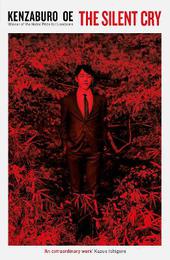
|
The Silent Cry
Paperback / softback
Main Details
| Title |
The Silent Cry
|
| Authors and Contributors |
By (author) Kenzaburo Oe
|
|
Translated by John Bester
|
|
Translated by John Bester
|
| Series | Serpent's Tail Classics |
|---|
| Physical Properties |
| Format:Paperback / softback | | Pages:288 | | Dimensions(mm): Height 196,Width 128 |
|
| Category/Genre | Modern and contemporary fiction (post c 1945) |
|---|
| ISBN/Barcode |
9781781255650
|
| Classifications | Dewey:895.635 |
|---|
| Audience | |
|---|
| Edition |
Main - Classic edition
|
|
Publishing Details |
| Publisher |
Profile Books Ltd
|
| Imprint |
Serpent's Tail
|
| Publication Date |
16 June 2016 |
| Publication Country |
United Kingdom
|
Description
It is the 1960s and the Nedokoro brothers have long-since left their family home in a remote forested valley on Shikoku, in the south of Japan: Mitsusaburo for Tokyo to work as a translator and English professor; his younger brother Takashi for the United States, to atone for his part in anti-American student protests. Takashi's return to Japan coincides with a local Korean supermarket magnate's offer to buy the brothers' ancestral storehouse, pitting Mitsusaburo and Takashi against one another and dredging up family histories perhaps best forgotten. Oe's dark masterpiece of family psychology is the most important Japanese novel of the post-war period and a strange, unsettling tale of how the call of blood and history echoes down the generations.
Author Biography
Kenzaburo Oe is Japan's most important living writer. Born in 1935 on the island of Shikoku, Oe studied literature at Tokyo University before spending the sixties in Paris where he came under the influence of Sartre. After his debut novel, he wrote a string of books dissecting contemporary Japan, including Nip the Buds, Shoot the Kids, Teach Us To Outgrow Our Madness, Rouse Up O Young Men of the New Age!, The Pinch Runner Memorandum and the essay collection Hiroshima Notes, on the impact on Japan's national psyche of the atomic bombing of Hiroshima at the end of the Second World War. He lives in Tokyo with his wife and his eldest son Hikari, who was born with severe brain damage; many of the narrators in Oe's fiction have brain-damaged children, most notably in the semi-autobiographical novel A Personal Matter. He won the 1994 Nobel Prize for Literature.
ReviewsAn extraordinary work -- Kazuo Ishiguro An imagined world, where life and myth condense to form a disconcerting picture of the human predicament today ... at first glance [The Silent Cry] appears to concern an unsuccessful revolt, but fundamentally the novel deals with people's relationships with each other in a confusing world in which knowledge, passions, dreams, ambitions and attitudes merge into each other -- Nobel Prize for Literature citation Though thoroughly Japanese, Oe, in the range of hope and despair he covers, seems to me to have in him a touch of Dostoevsky -- Henry Miller Somehow - and this is what gives his art such unquestionable stature - Oe manages to smuggle a comic thread in all this tragedy * Independent * A new pinnacle in postwar Japanese fiction -- Yukio Mishima Oe piles copious and inventive misery onto his hero before allowing him enlightenment and redemption. -- Jake Kerridge * Sunday Telegraph * A formidable scholar and intellectual whose novels express the soul-searching of postwar Japan * Boston Globe *
|